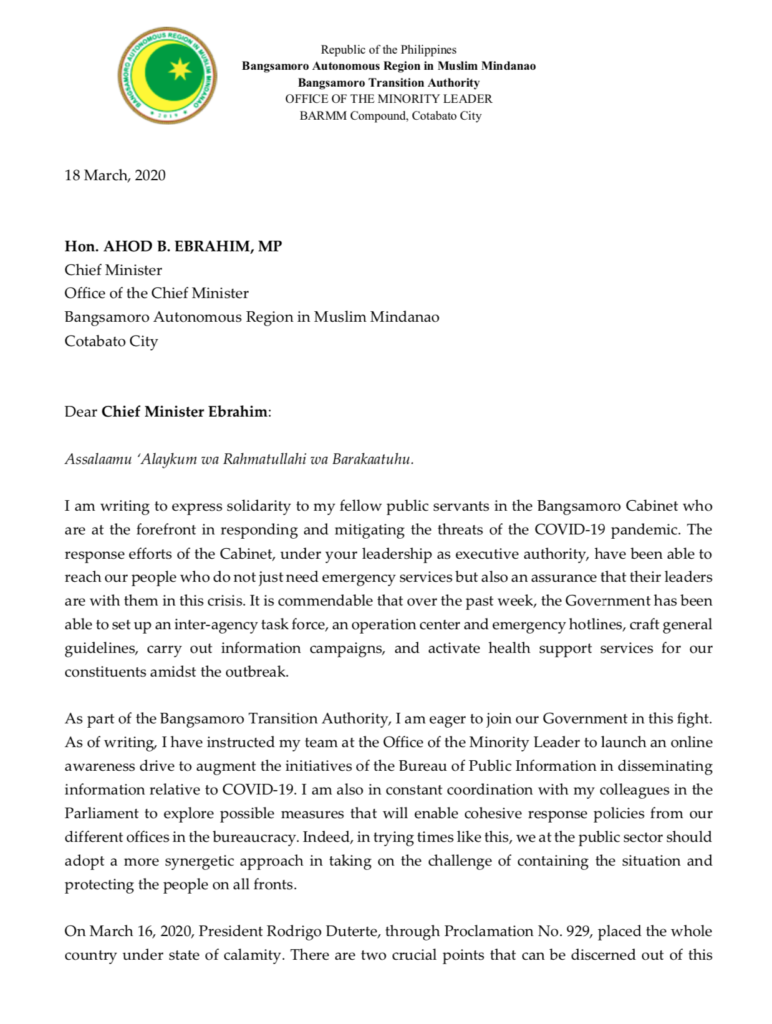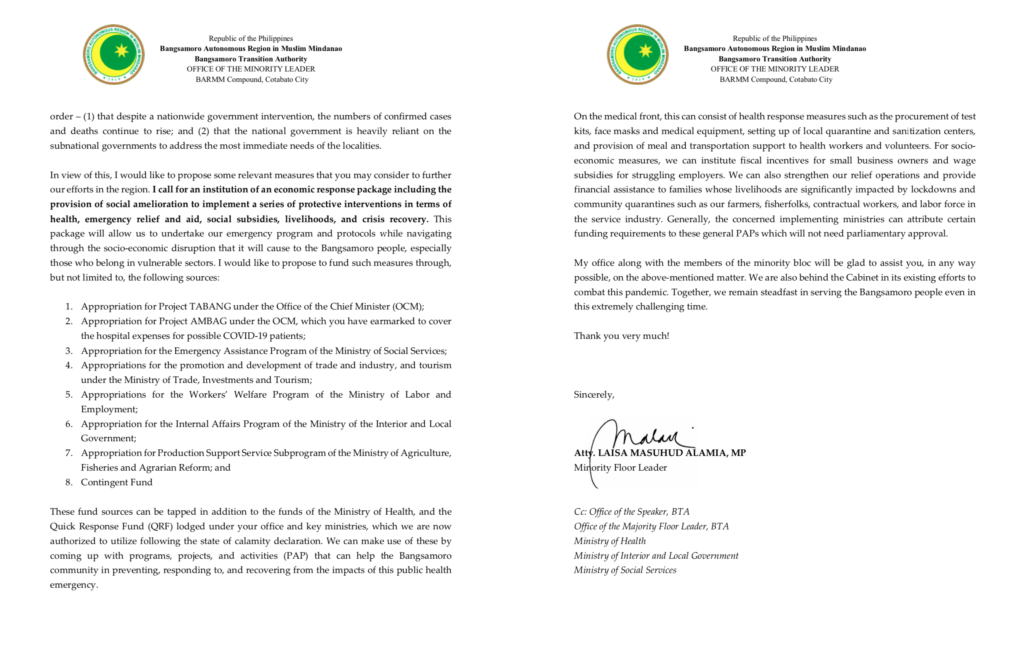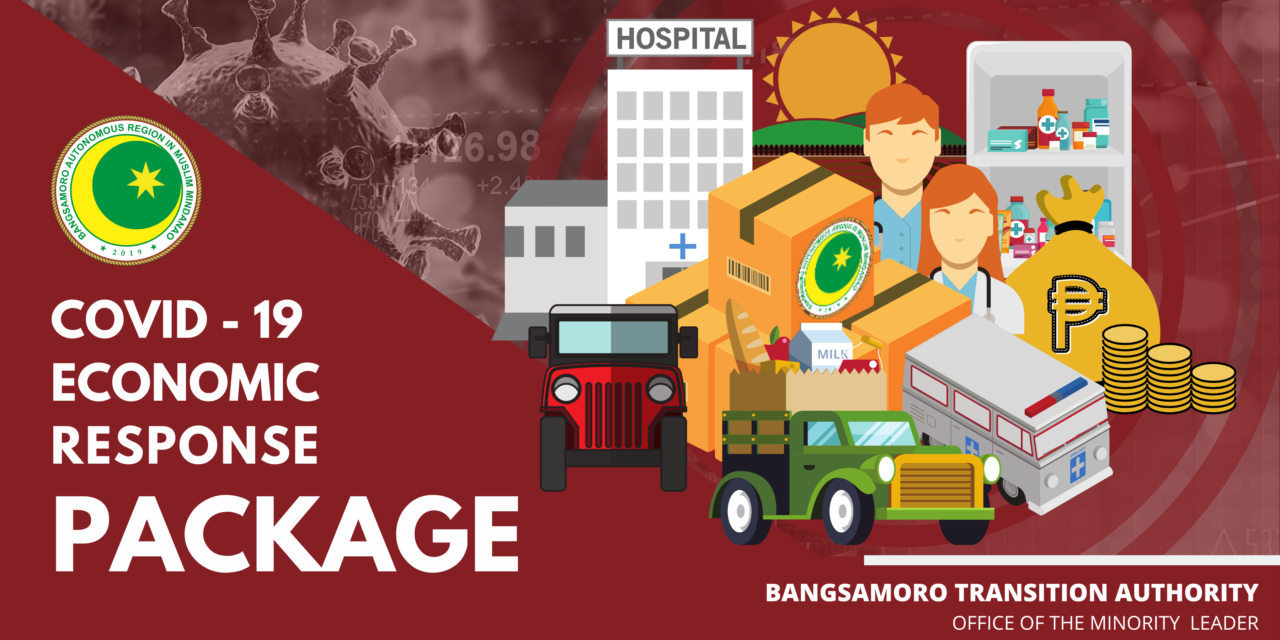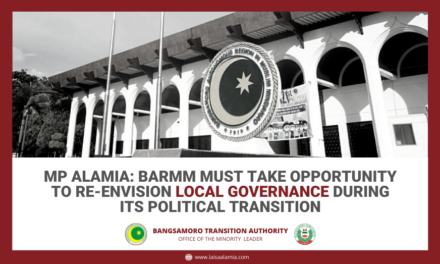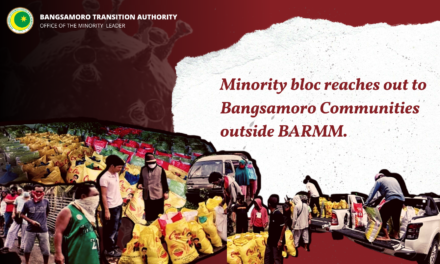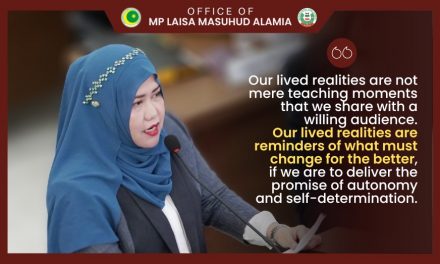MP Alamia proposed a regional economic response package last Wednesday, to help the Bangsamoro people fight the COVID-19 pandemic. The proposal combined a series of protective interventions and multiple measures for health, emergency relief and aid, social subsidies, livelihoods, and crisis recovery.
To help bring her economic package to life, MP Alamia pointed out several existing fund sources, in addition to the coffers of the Ministry of Health and the Quick Response Fund (QRF), which could be used to undertake emergency programs and protocols, while at the same time minimizing economic disruption and negative impact. Specifically, these include:
1. Appropriation for Project TABANG under the Office of the Chief Minister (OCM);
2. Appropriation for Project AMBAG under the OCM, which you have earmarked to cover the hospital expenses for possible COVID-19 patients;
3. Appropriation for the Emergency Assistance Program of the Ministry of Social Services;
4. Appropriations for the promotion and development of trade and industry, and tourism under the Ministry of Trade, Investments and Tourism;
5. Appropriations for the Workers’ Welfare Program of the Ministry of Labor and Employment;
6. Appropriation for the Internal Affairs Program of the Ministry of the Interior and Local Government;
7. Appropriation for Production Support Service Subprogram of the Ministry of Agriculture, Fisheries and Agrarian Reform; and
8. Contingent Fund.
These funds can be used to craft programs, projects, and activities (PAPs) which can help the Bangsamoro community prevent, respond to, and recover from the impacts of this public health emergency. The ministries tasked with implementation can then attribute certain funding requirements to these general PAPs, without need of parliamentary approval.
If approved, this move will improve the Bangsamoro government’s medical response by unlocking the procurement of test kits, face masks and medical equipment; by setting up local quarantine and sanitation centers; and by providing meals and transportation support to health workers and volunteers. It will promote socioeconomic welfare by giving the option to institute fiscal incentives for small business owners, as well as wage subsidies for struggling employers. It will also strengthen relief operations and provide financial assistance to families whose livelihoods are severely affected by the COVID-19 pandemic, such as our farmers, fisherfolks, contractual workers, and service industry workers.
